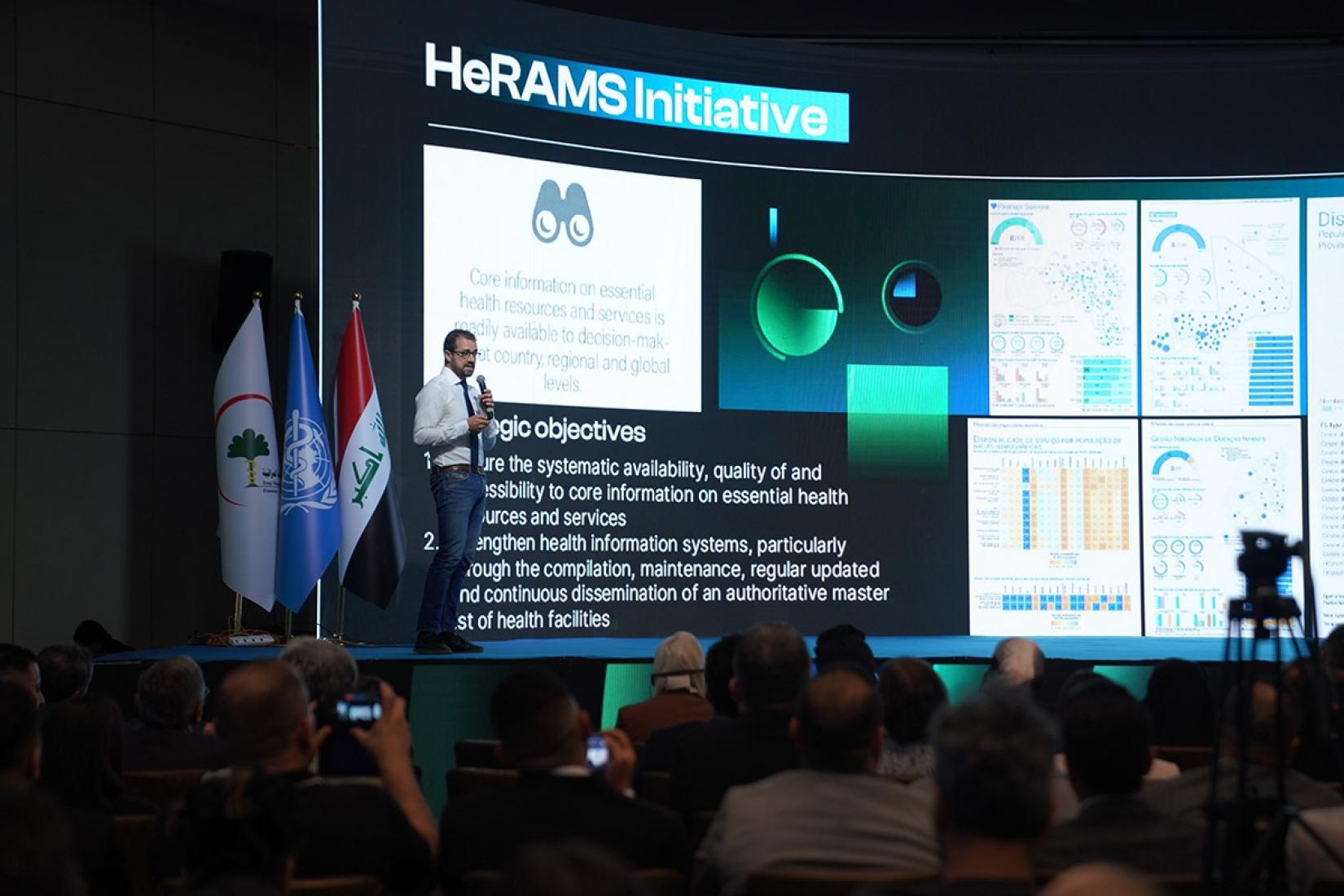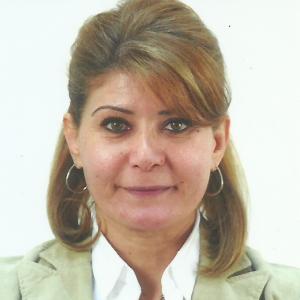HeRAMS transforms health care management in Iraq
07 April 2024

7 April 2024, Baghdad, Iraq – The Health Resources and Services Availability Monitoring System (HeRAMS) initiative has digitized health care management in Iraq and made vital information accessible for planning and decision-making purposes.
The project was launched in January 2022 to ensure availability of information about essential health resources and services for decision-makers at all levels. Completion of -building and data collection by mid-June 2024 will provide a comprehensive dataset on essential health resources and services provision. This can facilitate evidence-based decision-making to achieve health equity and ensure equal access to essential health services for all in Iraq.
“This success is a reflection of the power of collaboration and innovation in health care management,” said Dr Georges Ki-Zerbo, WHO Representative and Head of Mission in Iraq. “By working together with the national health authorities, we have been able to create a platform that not only responds to emergencies but also strengthens the overall health system, ensuring better access to health care for all.”
The initiative has standardized the collection, analysis and dissemination of information related to essential health services across Iraq. Compiling, maintaining, regularly updating and continuously sharing a master list of health facilities, resources and services has boosted the country’s health information systems.
Experts from WHO headquarters and the WHO Regional Office for the Eastern Mediterranean took part in a mission to Iraq and the Kurdistan region of Iraq in January 2022. Following this, the federal and Kurdistan region ministries of health sought support for a nationwide implementation of HeRAMS. A joint effort by the WHO Country Office in Iraq and both ministry of health teams then laid the foundations for this implementation.
“Initially, it was believed that HeRAMS would solely aid in emergency response. However, we have demonstrated its capability to also support developmental efforts effectively,” stated Dr Ali Kareem Al Mayahi, Deputy Director-General for Technical Affairs in the Planning Directorate of the Federal Ministry of Health.
The project implementation strategy was guided by WHO’s “Digital implementation investment guide”. This helped assist the Iraqi ministries of health and technical partners to plan the HeRAMS implementation, and at the same time, align this effort with Iraq’s national health system goals. Active participation from both ministries was key to ensure ownership and sustainability of the project.
The first round of HeRAMS implementation took place in 2022 and 2023. This initial phase resulted in an online dynamic dashboard and over 500 pages of descriptive analysis, including an advanced model for accessing health services.
This success paved the way for the second round of implementation, starting in early 2024. This latest round involves capacity-building workshops and revisions to the data collection process. It has also seen a roadmap put in place for the long-term sustainability of HeRAMS. This roadmap has gathered the highest political commitment from both health ministers.
WHO would like to express its gratitude to the federal and Kurdistan region ministries of health and the United States Agency for International Development for their support in advancing this transformative project.


